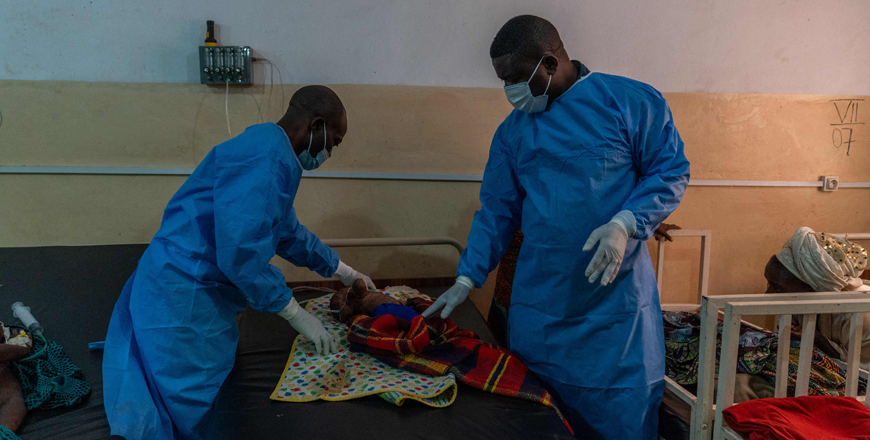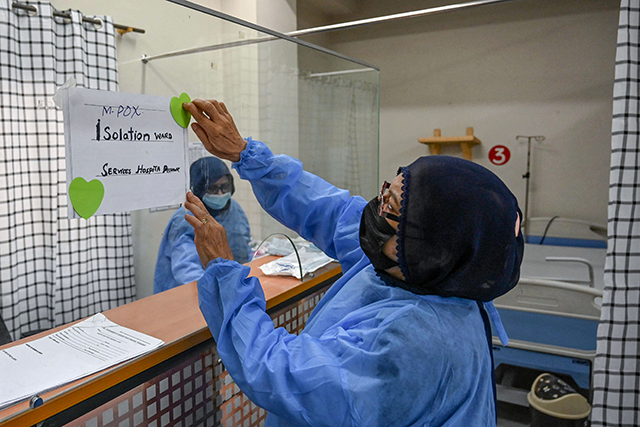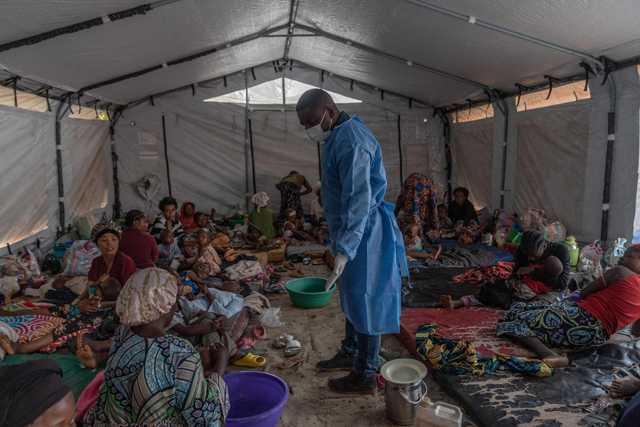You are here
Spain to donate 500,000 mpox vaccines to Africa
By AFP - Aug 27,2024 - Last updated at Aug 27,2024

Dr. Robert Musole, medical director of the Kavumu hospital (R) consults an infant suffering from a severe form of mpox at the Kavumu hospital, 30 km north of Bukavu in eastern Democratic Republic of Congo, August 24 (AFP photo)
MADRID — Spain will donate 500,000 mpox vaccine doses to countries in central Africa suffering from a surge in cases, the government said Tuesday.
The doses amount to 20 per cent of Spain's total mpox vaccine reserves, the health ministry said in a statement without specifying which nations in the region will receive the vaccines or when they will arrive.
Spain also urged its European Union peers to follow suit and also donate 20 per cent of their mbox vaccine stockpile, saying it" makes no sense to stockpile vaccines where there is no problem," the statement added.
France and Germany have both announced they will each donate 100,000 mpox vaccine doses to countries suffering from the emergency.
No mpox cases have yet been reported in Spain. Sweden's Public Health Agency announced earlier this month it had registered a case of the Clade 1b variant of mpox.
While that was the first case in Europe, the patient had been infected during a visit to an affected African country.
The World Health Organisation (WHO) on Tuesday said droplets were a minor route of transmission for mpox compared to physical contact, adding that more research was needed to understand how the outbreak is spreading. WHO declared an international emergency over mpox on August 14, concerned by the surge in cases of the Clade 1b strain in the Democratic Republic of Congo and its spread to nearby countries.
The UN health agency says on its website that mpox spreads between people mainly through close physical contact with someone who has the virus. "Close contact includes skin-to-skin (such as touching or sex) and mouth-to-mouth, or mouth-to-skin contact (such as kissing)," it says.
It can also include "being face-to-face with someone who has mpox (such as talking or breathing close to one another, which can generate infectious respiratory particles)".
WHO spokeswoman Margaret Harris said Tuesday that if a person with the virus had lesions, "if you're talking closely to someone, breathing on them, physically close, face-to-face, there is a possibility" of viral spread, "but this is a minor source". Instead, "what we're seeing is the close, physical skin-to-skin" contact as the chief route of transmission, she told a briefing in Geneva.
Related Articles
FRANKFURT, Germany — Germany will donate 100,000 mpox vaccine doses to countries in Africa suffering from a surge in cases, the government s
GENEVA — The mpox outbreak is not another Covid-19, the World Health Organization said Tuesday, because much is already known about the viru
BRAZZAVILLE — The African Union's health watchdog on Wednesday said it was close to securing almost one million mpox vaccine doses, ur



















